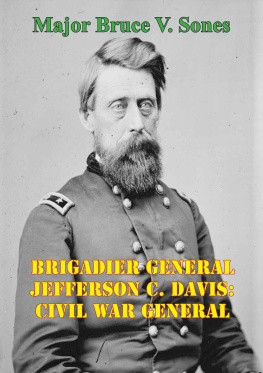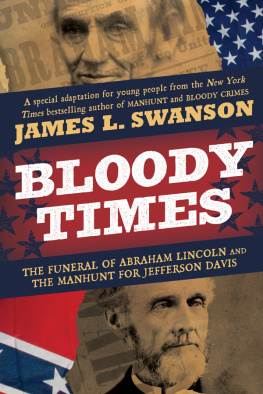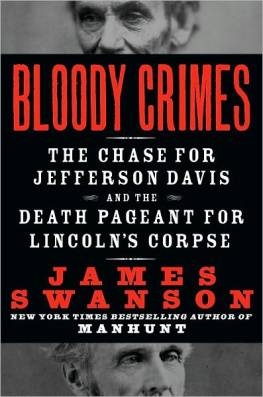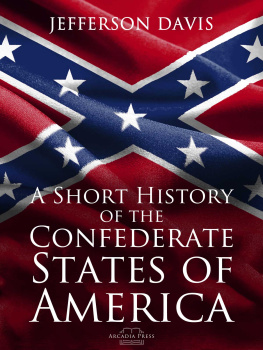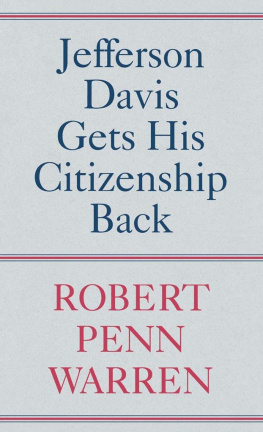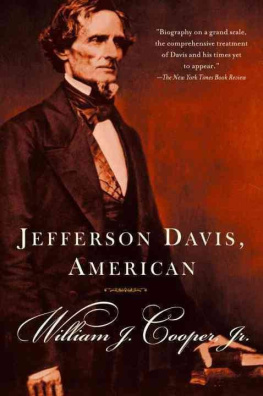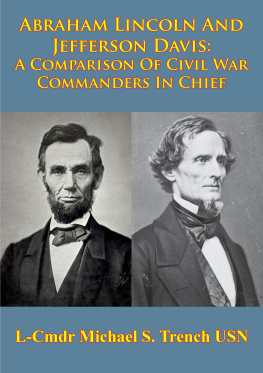Jefferson Davis - The Papers of Jefferson Davis
Here you can read online Jefferson Davis - The Papers of Jefferson Davis full text of the book (entire story) in english for free. Download pdf and epub, get meaning, cover and reviews about this ebook. year: 1995, publisher: LSU Press, genre: Home and family. Description of the work, (preface) as well as reviews are available. Best literature library LitArk.com created for fans of good reading and offers a wide selection of genres:
Romance novel
Science fiction
Adventure
Detective
Science
History
Home and family
Prose
Art
Politics
Computer
Non-fiction
Religion
Business
Children
Humor
Choose a favorite category and find really read worthwhile books. Enjoy immersion in the world of imagination, feel the emotions of the characters or learn something new for yourself, make an fascinating discovery.

- Book:The Papers of Jefferson Davis
- Author:
- Publisher:LSU Press
- Genre:
- Year:1995
- Rating:3 / 5
- Favourites:Add to favourites
- Your mark:
- 60
- 1
- 2
- 3
- 4
- 5
The Papers of Jefferson Davis: summary, description and annotation
We offer to read an annotation, description, summary or preface (depends on what the author of the book "The Papers of Jefferson Davis" wrote himself). If you haven't found the necessary information about the book — write in the comments, we will try to find it.
Jefferson Davis: author's other books
Who wrote The Papers of Jefferson Davis? Find out the surname, the name of the author of the book and a list of all author's works by series.
The Papers of Jefferson Davis — read online for free the complete book (whole text) full work
Below is the text of the book, divided by pages. System saving the place of the last page read, allows you to conveniently read the book "The Papers of Jefferson Davis" online for free, without having to search again every time where you left off. Put a bookmark, and you can go to the page where you finished reading at any time.
Font size:
Interval:
Bookmark:
JEFFERSON DAVIS
The National Historical Publications and Records Commission
The National Endowment for the Humanities
Mississippi Department of Archives and History
Mary Seaton Dix
Elmer C. Hogue, Jr.
Webb Family Fund
William Marsh Rice University
The Jefferson Davis Association

Jefferson Davis, c1880
Jefferson Davis
1880 1889
Suzanne Scott Gibbs, ASSISTANT EDITOR
William C. Davis
BATON ROUGE
2015
All rights reserved
Manufactured in the United States of America
First Printing
(Revised for vol. 14)
The Papers of Jefferson Davis.
Vol. 14 edited by Lynda Lasswell Crist and Suzanne Scott Gibbs.
Includes bibliographical references and indexes.
Contents: v. 1, 18081840. v.14, 18801889.
1. Davis, Jefferson, 18081889 Archives.
2. Presidents Confederate States of America Archives.
3. Confederate States of America History Sources.
I. Monroe, Haskell M. II. McIntosh, James T.
III. Title
E467.1D2596 2015
ISBN 08071-0943-6 (v.1)
ISBN 978-0-8071-5909-5 (v. 14, cloth) ISBN 978-0-8071-5910-1 (pdf) ISBN 978-0-8071-5911-8 (e-pub) ISBN 978-0-8071-5912-5 (mobi)

Font size:
Interval:
Bookmark:
Similar books «The Papers of Jefferson Davis»
Look at similar books to The Papers of Jefferson Davis. We have selected literature similar in name and meaning in the hope of providing readers with more options to find new, interesting, not yet read works.
Discussion, reviews of the book The Papers of Jefferson Davis and just readers' own opinions. Leave your comments, write what you think about the work, its meaning or the main characters. Specify what exactly you liked and what you didn't like, and why you think so.


